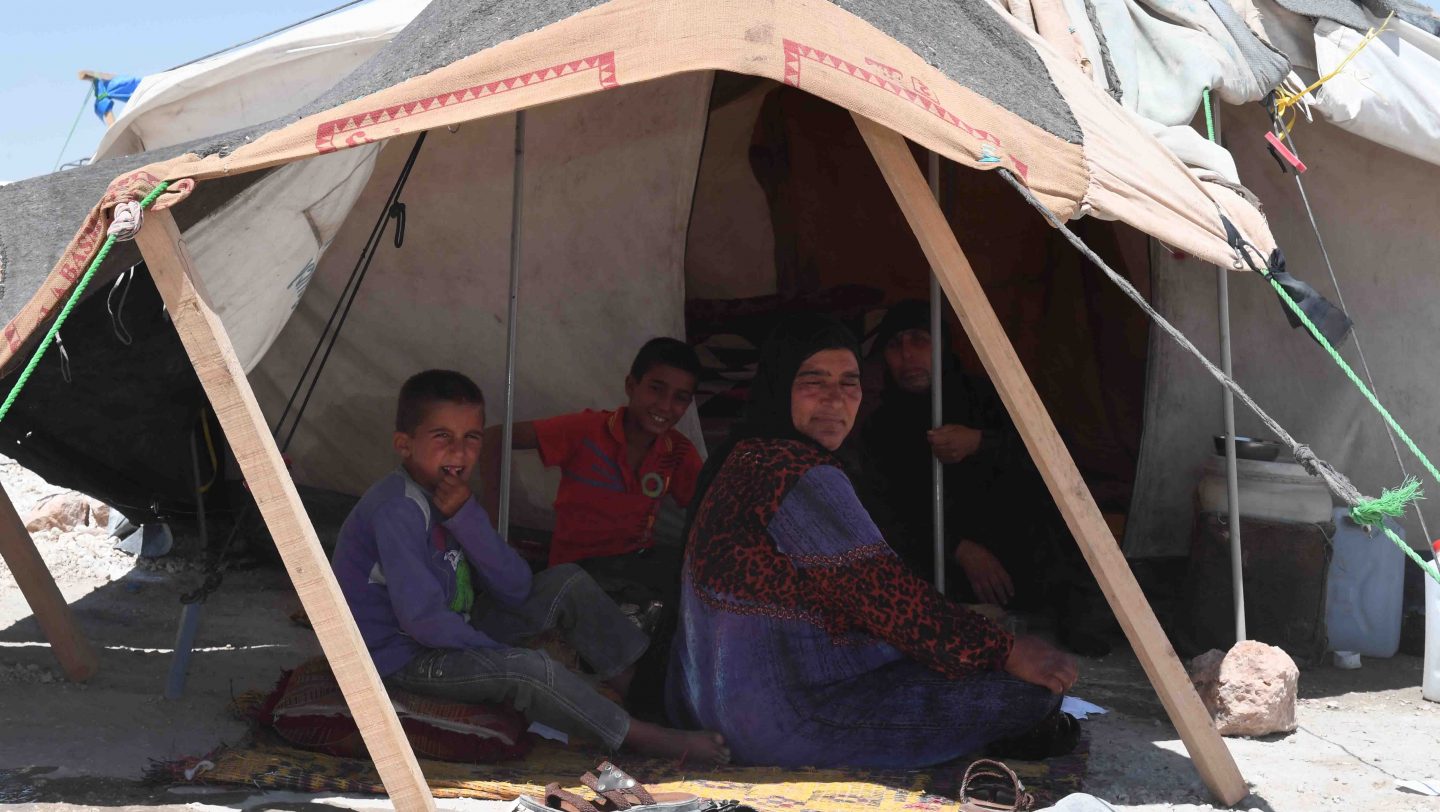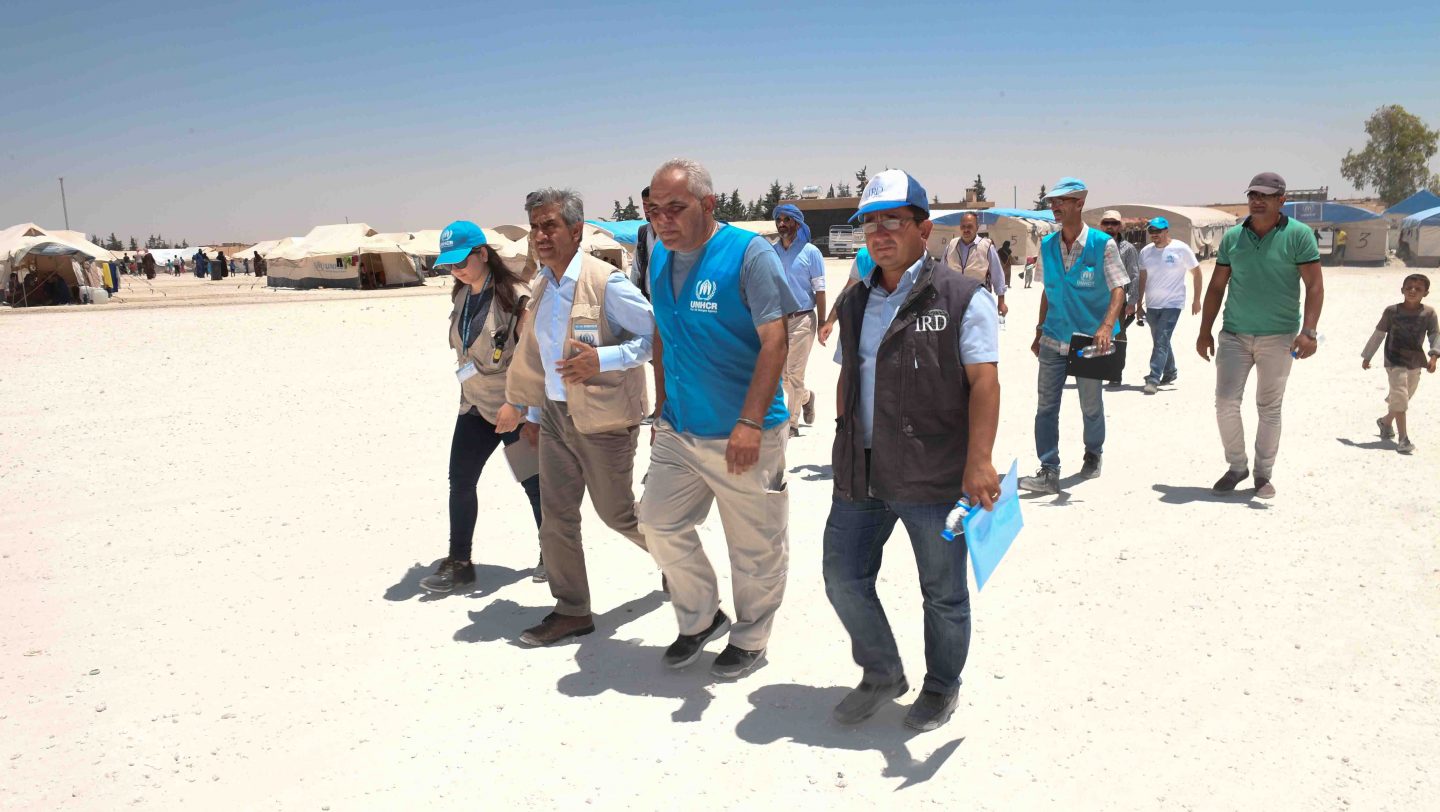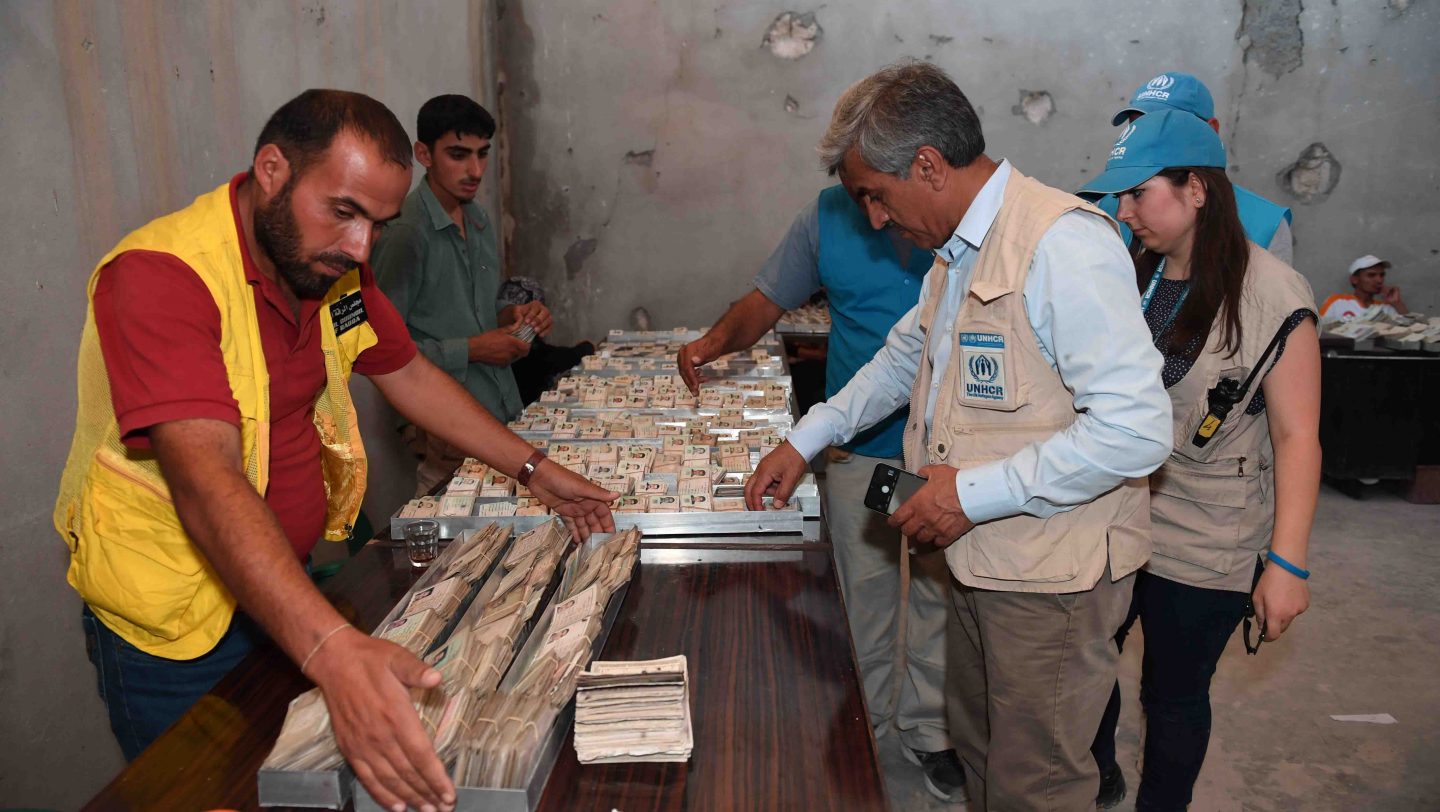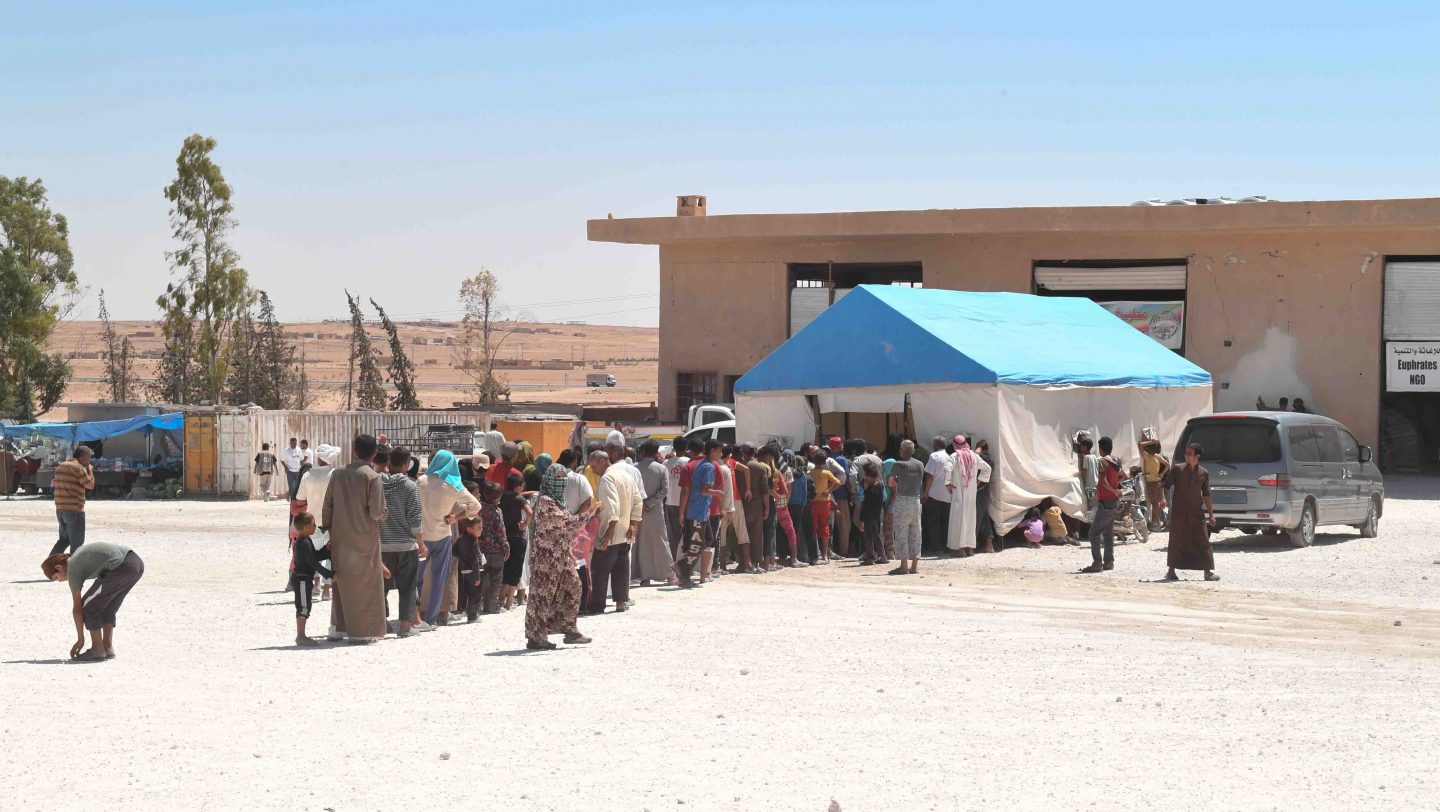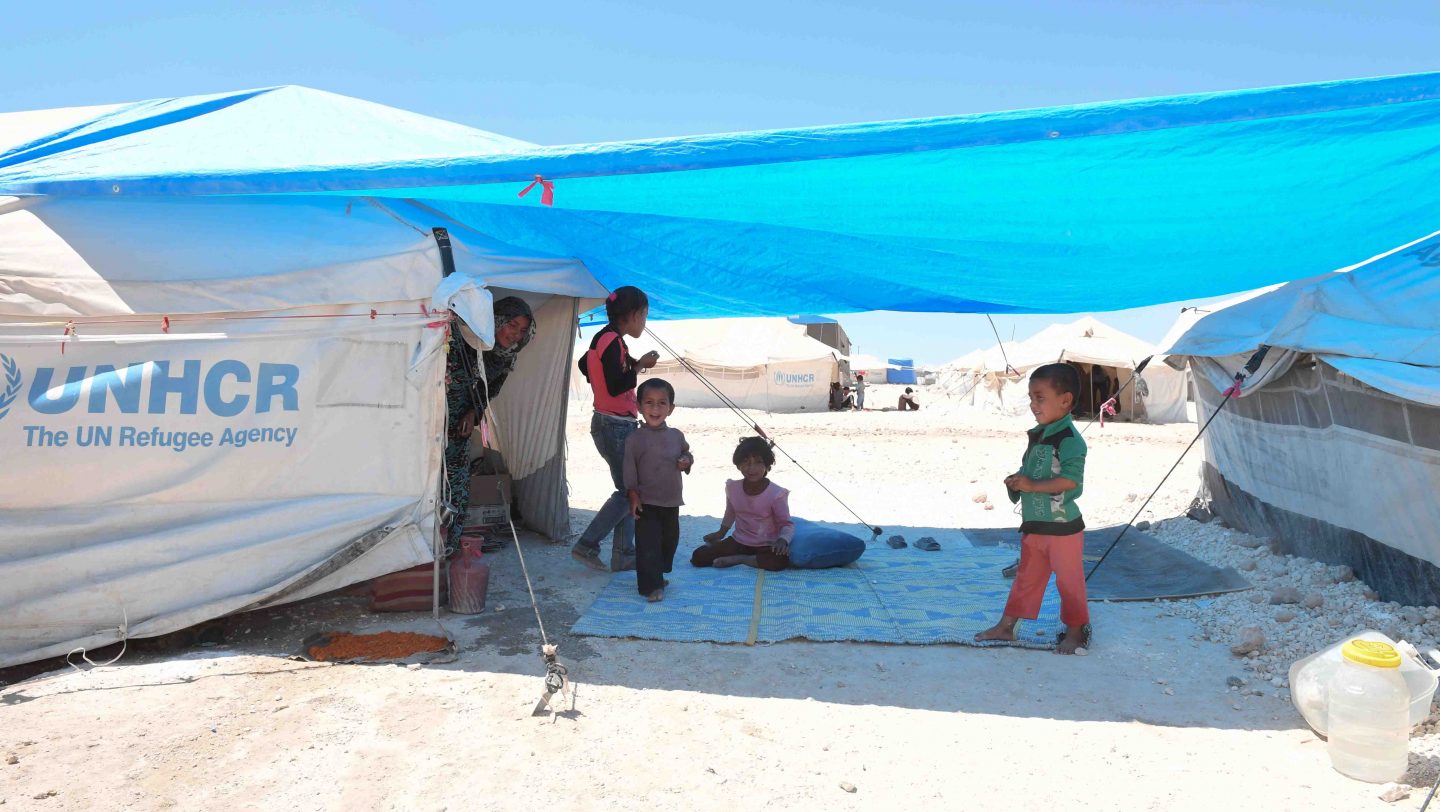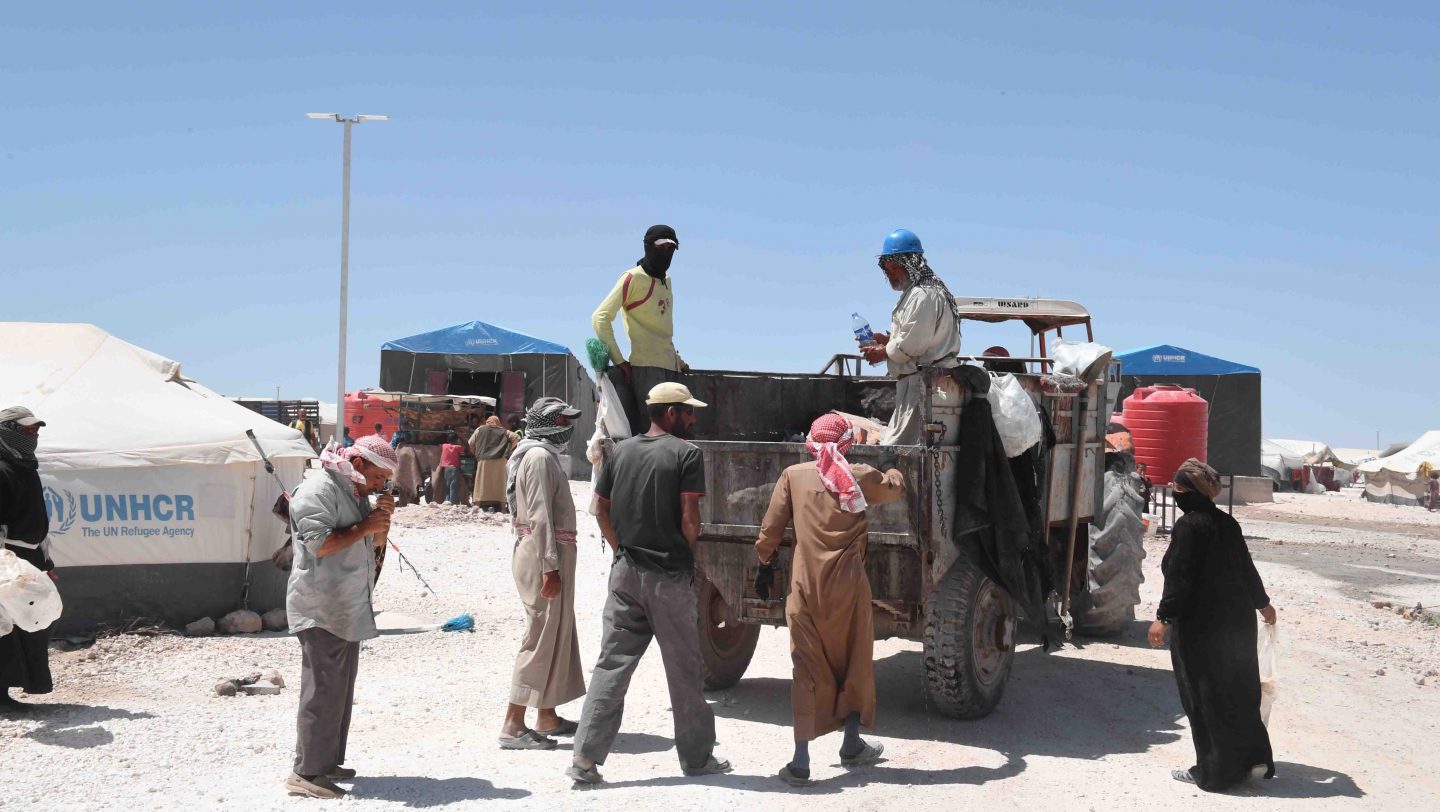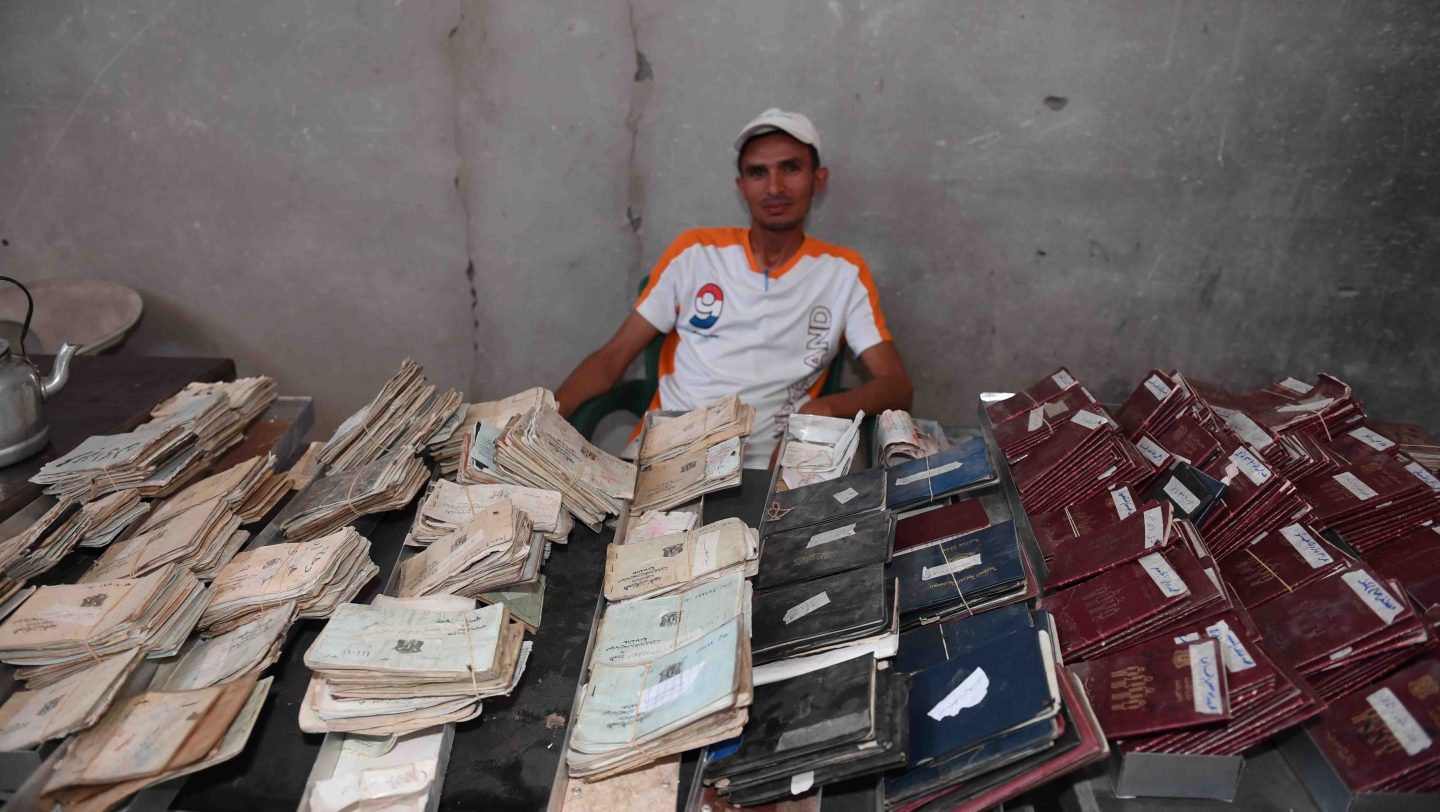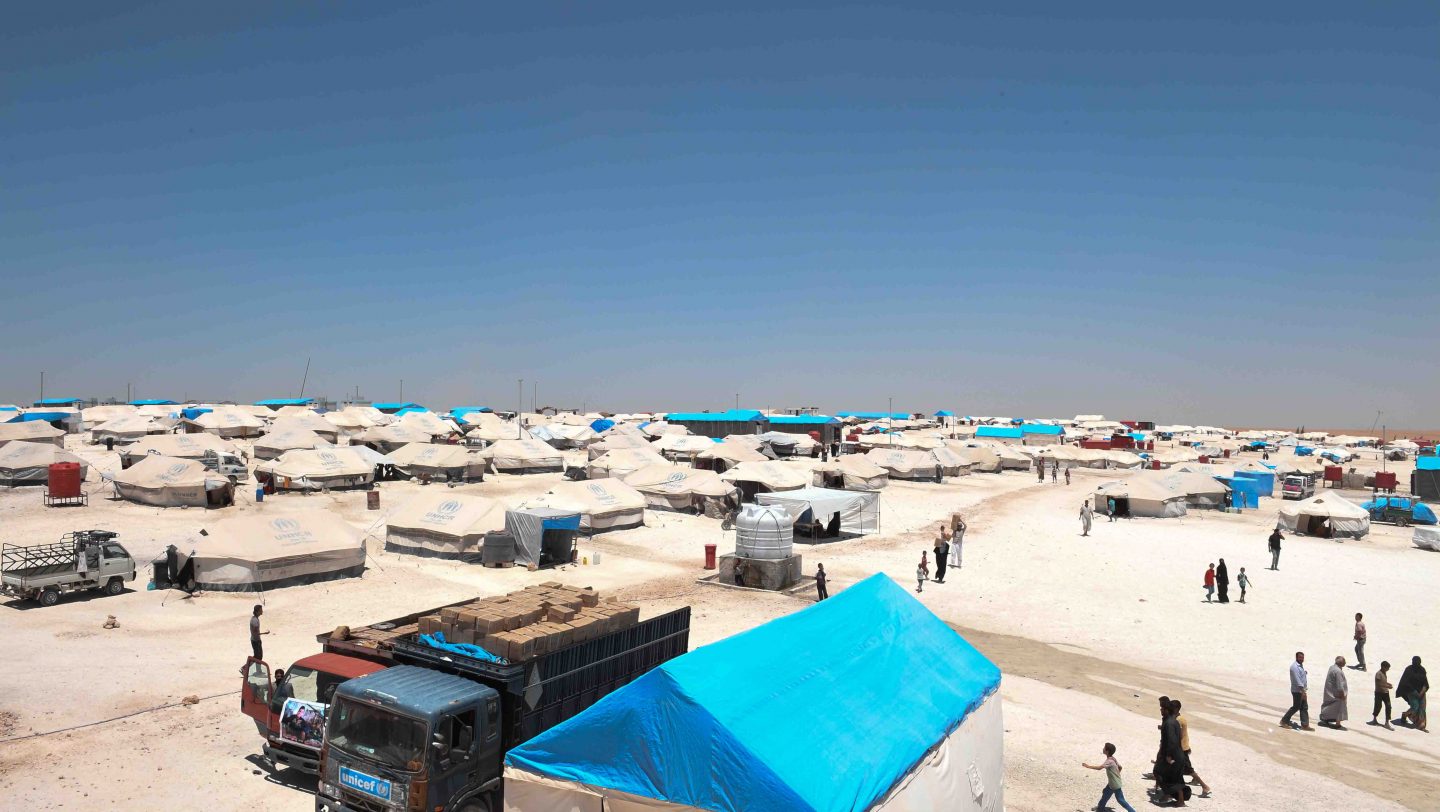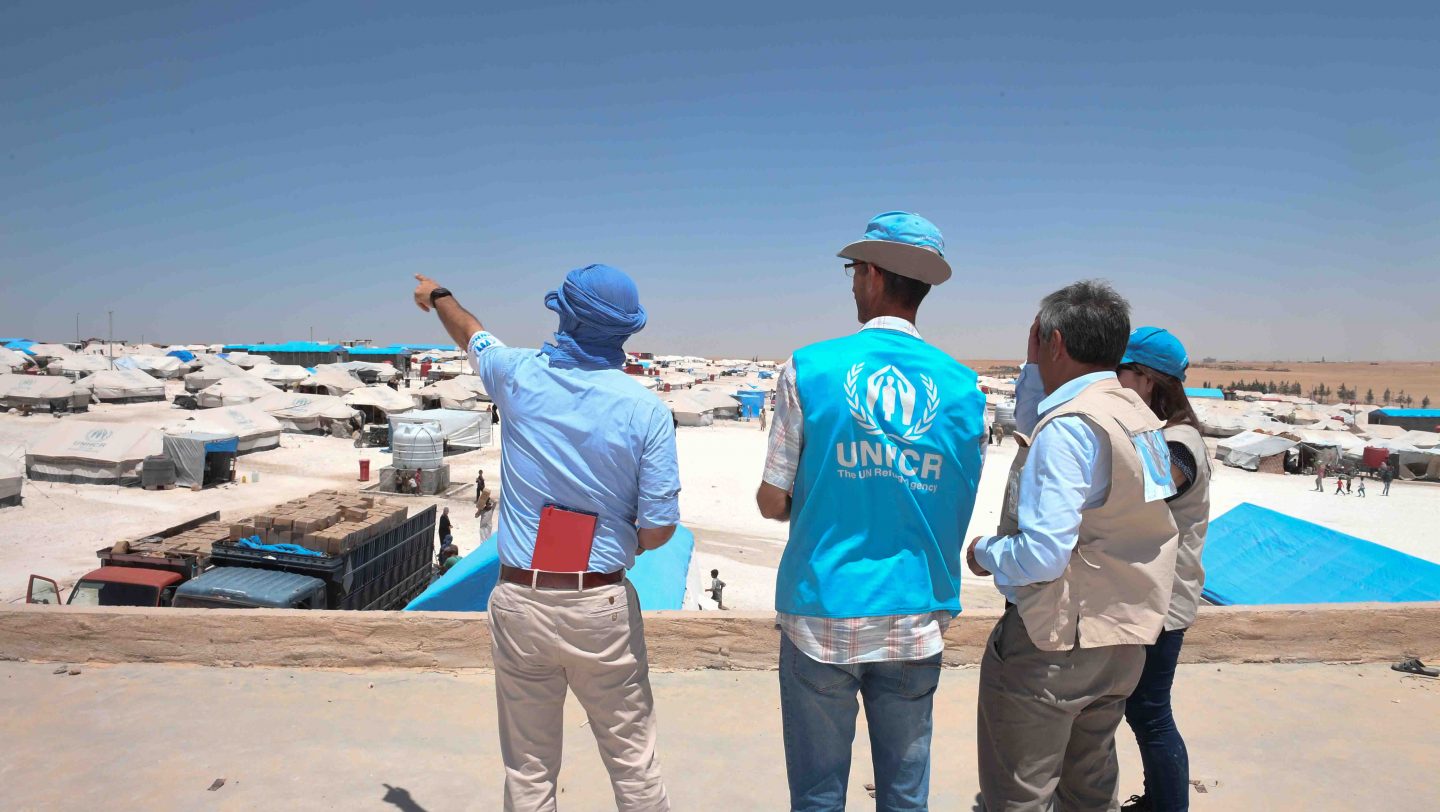Desperate needs and pleas for safe passage out of Raqqa
UNHCR’s Representative in Syria, Sajjad Malik, travelled to Raqqa governorate and met with Syrians who have fled the besieged city. Malik heard from people in desperate need as he visited the Ein Issa camp on Saturday – with people pleading for safe passage for the family left behind.
UNHCR’s Representative in Syria, Sajjad Malik, travelled to Raqqa governorate and met with Syrians who had fled the besieged city.
Malik heard from people in desperate need as he visited the Ein Issa camp in Syria’s Raqqa governorate on Saturday – people pleaded for those they left behind who remain trapped in Raqqa to be given safe passage out.
As he toured the camp housing approximately 7300 people in sweltering heat, over and over, Malik heard harrowing accounts from displaced Syrians, as they described their lives in Raqqa and their struggle to make it to safety at Ein Issa. Many spoke of death, destruction, missing family members and even of having to pay human smugglers hefty fees to secure passage out of Raqqa.
The UN estimates that up to 30, 000 people could remain trapped in the city – it is difficult to accurately estimate given a lack of access. Supplies of food, water, medicine, electricity and other essentials are dwindling, with the situation rapidly deteriorating. It is imperative that trapped civilians are able to secure safe passage out – to reach safety, shelter, and protection.
Malik stressed again, parties to the conflict including the International Coalition Forces and SDF must protect civilians and respect the principles of International Humanitarian Law, including distinction, proportionality and precaution.
At Ein Issa – those who fled the conflict are being provided with lifesaving assistance and help to sort out their documents and registration crucial to their freedom of movement.
UNHCR and other UN agencies including WFP, UNICEF, UNFPA, WHO, OCHA and NGO partners are working around the clock in very difficult circumstances to overcome obstacles and to provide life-saving assistance to those in need.
Malik says he was humbled and proud to witness at first-hand his team going about their work in the camp, including registering new arrivals, helping people who had to leave everything behind to sort out civil documents, identifying cases to follow up on, helping care for children – many of whom are deeply traumatised, distribute relief items and working with the camp management to improve conditions.
UNHCR is continuing to step up efforts to reach those in need, as people continue to flee the ongoing violence and are desperate for a range of aid.

